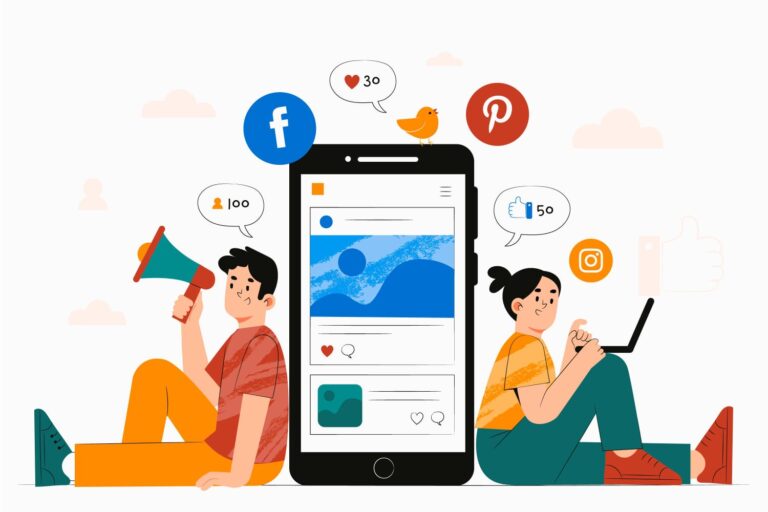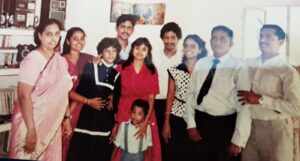
Navigating the Fragile Digital Family

With 6.6 billion smartphones around the world and 20 percent of them in India alone, almost everyone belongs to the growing digital family. Almost 58.4 % of internet users are also now on Facebook, WhatsApp, Twitter, Instagram and on other social media platforms that connect individuals and communities far and wide turning the world into a global village.
The dangers of the social media and internet connectivity, despite their tremendous potential seen over the last 20 years are very real. On a daily average, a research shows worldwide audience spends 6 hours 53 minutes per day on the internet and 2 and half hours on social media. This leads to addiction with smartphones and tablets that are handy, with their ability to connect anywhere at any time. With everyone checking their devices every few minutes this also often affects social interaction, impacting relationships, sleep and there-by health.
At homes, use of smartphones impacts the family bond as each member remains glued to their devices. With parents working from home, the old dinner table conversations between parents and children or among siblings are on the decline. Even spousal trust and the quality of interaction between husband and wife are being threatened. According to the Pew Research Center, 40% of partnered adults say that they are bothered by the amount of time their partner spends on his/her smartphone.
The Hours of Work (Industry) Convention 1919 sets a general standard of working hours not exceeding beyond 48 hours in a week, with a maximum of 8 hours per day. But with the advancement of network via phones and related systems, restricted working hours are extended at home that develop anxiety and depression into nausea, headaches, muscle tension, and tremors. We are slowly forgetting the importance of physical fitness this way.
Smartphones and the like have also become easy babysitting tools which cause a huge damage affecting a child’s holistic development. Regular use of phones in tender age can intoxicate the child’s consciousness and reduce the power of concentration in studies and other learning process. Technology can surely contribute to a child’s development, but too much of it can be a real problem.
Most modern teens are so engrossed in networking with people far away that they often communicate with the person near looking at a screen and not the person. Many make online friendship with unknown persons who may not be the real person they claim to be. There are heartbreaks and disappointments when they are taken for a ride through fake profiles including false claims of age and gender. There are instances of older adults or peadophiles disguising as youngsters trapping teenagers, particularly girls. Every day 38 percent of internet users experience cyber bullying, cyber stalking and cyber fraud cases, some statistics say.
Pornography is another with immense traction on internet today. With more people connecting to the internet via smartphones than desktop computers, adult content has become easy to access. The anonymity advantage is a key factor that lures large number of people into pornography. Some data suggests 2.5 million people visit porn sites every 60 seconds. Watching porn is often private and experts say this could impact brain, develop a beastly view on sex besides nurturing flesh trade.
Digital technology or the Internet is an incredible network of interconnected servers and computers that amazingly saves our time and energy. It’s also a great tool to gather information and knowledge. It’s important we understand its potential to wreak havoc and cause irreparable damage to health and relationships and use it responsibly.
Building a healthy digital family is the need of the hour. A conscious attempt to limiting screen time, nurturing and loving in person interactions, cultivating reading habits, executing no gadget hours and other such measures could help in building happy homes and communities even in this digital era before it is too late.
Check our website www.tellmystory.in
Follow our socials for more inspiring stories —
YouTube: https://youtube.com/channel/
Hoote: https://hoote.page.link/
Instagram: www.instagram.com/tellmystory.
Twitter: www.twitter.com/tellmystory__
Facebook: www.facebook.com/tellmystory.
Facebook
Twitter
LinkedIn
Pocket
WhatsApp
- Tags: Addiction, Digital Family, INternet, Pornography, Social Media
Related News


The Animal Whisperer: A Heartwarming Tale of Compassion
July 26, 2024


Challenging Casual Misogyny: Why It Matters
July 22, 2024

Becky’s Wild Days: Gooseberry Raids and Saintly Bites
July 20, 2024

A Feline Legacy: From Kitten to Kindred Spirits
July 13, 2024

Hero Garbage Collector Returns Lost Belongings
July 7, 2024

A Fall To Remember.
July 7, 2024

Recent Stories

Godspeed TASMAC Retail Vending Shop 9173
July 26, 2024

The Animal Whisperer: A Heartwarming Tale of Compassion
July 26, 2024


Challenging Casual Misogyny: Why It Matters
July 22, 2024

Becky’s Wild Days: Gooseberry Raids and Saintly Bites
July 20, 2024

A Feline Legacy: From Kitten to Kindred Spirits
July 13, 2024



This Post Has 3 Comments
As Marshall McLuhan rightly said, “We become what we behold. We shape our tools, and thereafter our tools shape us.” Our technology, like the smartphone, is indeed an extension of us – it is our library, our social circle, our office, and our entertainment hub. It is like an organ or a limb. With our feet we can decide to walk into a library to indulge ourselves with knowledge or we can go to a watering hole to get smashed.
Technology is an extension of ourselves, it must be wielded with care. It’s our challenge, and duty, to turn this tool into a means of promoting goodness and fostering genuine connections, rather than letting it eclipse our human interaction and personal growth.
As psychologist Erik Erikson once posited, our environment plays a significant role in shaping our development. Social media indeed fosters peer-to-peer communication, thanks to its sophisticated algorithms recommending like-minded individuals, or as you put it, “People Like Us” (PLU). In our youth, our exposure was far more diverse, ranging from playing with peers to engaging with adults at home. This exposure to a variety of age groups enabled us to grow multi-dimensionally.
Today’s digital landscape, however, can lead to a more uni-dimensional growth for children, where they physically share space with us but are virtually engrossed with their contemporaries. This could limit their maturity and overall growth.
We as adults face the challenge to make ourselves irresistibly fascinating. We must strive to be so compelling that children abd grand children to be willingly set aside their devices, captivated by our words and wisdom.
Valid point.